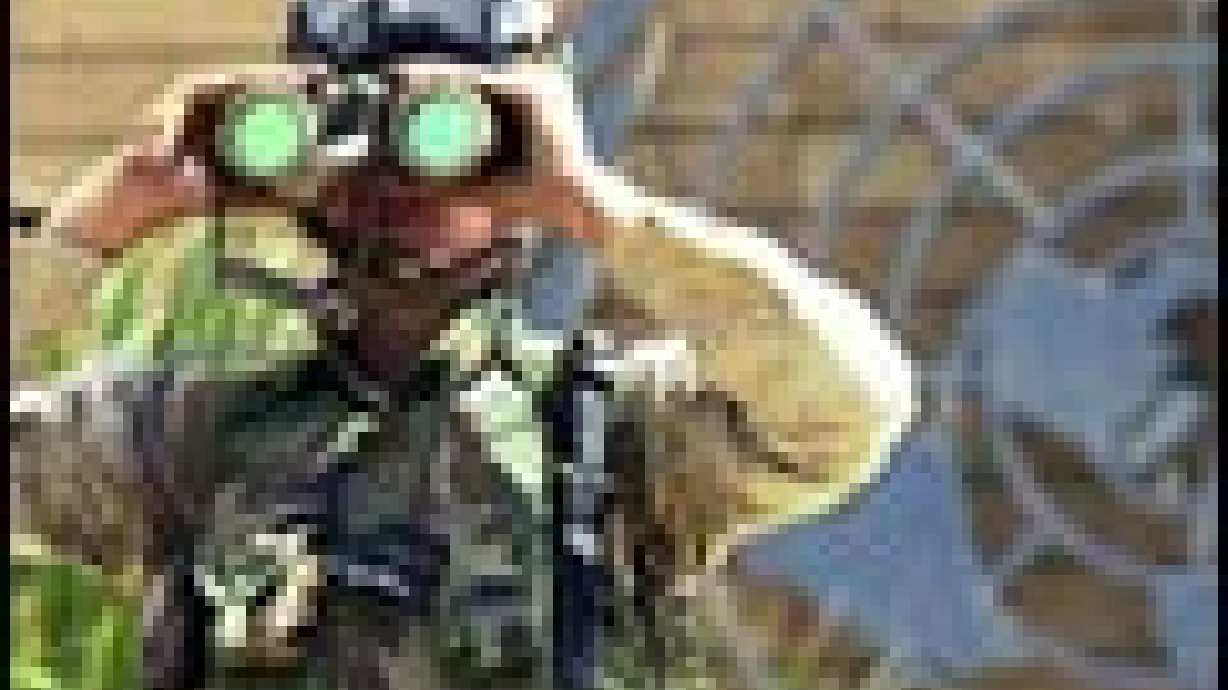Estimated read time: 3-4 minutes
This archived news story is available only for your personal, non-commercial use. Information in the story may be outdated or superseded by additional information. Reading or replaying the story in its archived form does not constitute a republication of the story.
WASHINGTON (AP) -- American forces have collected "plenty of documentary evidence" suggesting Saddam Hussein had an active program for weapons of mass destruction, the commander of U.S. Army troops in Iraq said Wednesday.
And officials were taking extra care in studying a truck suspected to be the first discovered biological-chemical mobile lab, especially in light of a number of instances when discoveries were announced that turned out not to materialize later.
Lt. Gen. William S. Wallace, commander of the Army's Fifth Corps, told a press conference the reason Saddam didn't use unconventional weapons against invading forces may be that these weapons were buried too well to retrieve before the fast coalition dash to Baghdad.
"We've collected evidence, much of it documentary, that suggests there was an active program" for unconventional weapons, Wallace said.
"A lot of the information that we're getting is coming from lower-tier Iraqis who had some knowledge of the program but not full knowledge of the program," he told Pentagon reporters in a videoconference from the Iraqi capital. "And it's just taking us a while to sort through all of that."
He did not elaborate.
The Bush administration said destroying Iraq's suspected chemical, biological and nuclear weapons programs was the main reason for the war. Despite weeks of searches of suspected sites, none has been reported found so far. And though Pentagon officials suggested before the war that some Iraqi units were armed with chemical weapons, none was found when those units were overrun.
Experts were still studying a truck suspected to be the first discovered biological-chemical mobile lab, said Wallace, who also was battle commander for the battle of Baghdad.
The suspect truck was handed over to U.S. forces in northern Iraq and was being moved to Baghdad for further investigation, a senior official said later, speaking on condition of anonymity.
On several occasions, troops have found substances they said tested positive as nerve agents or other chemical weapons materials, only to learn from more sophisticated testing that they were crop pesticides, explosives and so on.
The defense official said that he and others "feel good" about the prospect this time that they have found good evidence of an unconventional weapons program.
But they are being careful to cover all bases. He noted that many questions will be asked if it is announced as the evidence -- including "chain of custody" information on who has handled the truck and whether it might have been tampered with.
Acknowledging that it was only one of his theories, Wallace said the reason such unconventional weapons never were used was that the Iraqis had to hide them from U.N. weapons inspectors up until the last days before the war.
"Inspectors only left Baghdad a few days before the start of the campaign," Wallace said. "Because they were so clever in disguising them and burying them so deep, they themselves had a problem getting to it."
Wallace said among work his men are doing now is joint police patrols and helping train Iraqis in police procedures.
He said there is still small arms fire in Baghdad and occasional criminal acts that he attributed partly to prisoners Saddam released before the war in an unusual pardon.
Looting also has been a problem in the power vacuum left by the fall of Saddam's regime. "I'm not particularly concerned about security in Baghdad at all," other than that, he said, adding that there are no areas in the entire country that he is "overly concerned about."
Troops are making progress in Tikrit, Saddam's hometown, and are expanding operates all the way to the Syrian border in the west of Iraq, he said.
(Copyright 2003 by The Associated Press. All Rights Reserved.)









